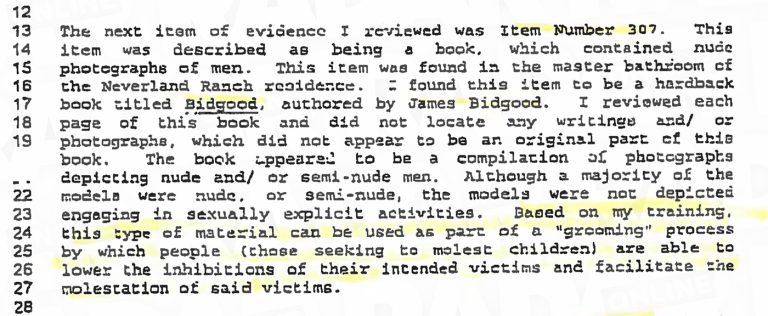Re: Tinker Tailor Soldier Forger
Posted: Tue May 19, 2020 6:06 pm
*Sigh*
Did you read the OP?
Did you read the OP?
Investigating the roots of western civilization (ye olde BC&H forum of IIDB lives on...)
https://earlywritings.com/forum/
I don't get how NONE OF THIS IS DEEMED RELEVANT BY YOU. You act with the certainty of a fanatic. There is no evidence Morton Smith was a forger. Surely that allows for other possibilities to at least be considered.According to Empedocles, the primordial soul became clothed "in the unfamiliar tunic of flesh" ( Empedocles frag. 126). At death, said Plato, souls leave their bodies and ascend to judgment naked so that nothing will be hidden from the judges (Gorgias 523). According to Plotinus, the mystical experience of the philosopher is the "stripping off of the garments with which we were clothed when we descended from mind and reascending in our naked selves" (Ennead 1.6.7.5-7). The Jewish philosopher Philo interpreted the "coat of skins" given Adam and Eve after their fall to be the body (Questions and Answers on Genesis 1:53 and 4:78). (The "coat of skins" in Genesis 3 was taken to be the body also by Julius Cassianus [apud Clement of Alexandria Stromateis 3.14.95; cf. 3.14.92]; Ptolemy [apud Irenaeus Ad- versus haereses 1.1.10 and Tertullian Adversus Valentinianos 24.3!; and Theodotus [apud Clement of Alexandria Excerpta ex Theodoto 55]. See also Tertullian De resurrectione carnis 7 and De cultu feminarum 1 . 1 ., and Origen Contra Celsum 4.40.) According to Philo, the soul that pursues God already has "disrobed itself of the body . . . , [and has] fled far away" (Allegorical Interpretation 2.55; cf. 56). see also Maximus of Tyre 2.10b and 11e
Seriously, could you cite the best examples of Clement defending the Agape against these charges elsewhere? I'd like to see how similar they are to To Theodore.And agape was taken to mean an orgiastic love feast outside of to Theodore. And Clement himself defends the Agape from these charges elsewhere in his writings.
Also Epiphanius as Lawlor notes isn't always using Irenaeus but often times cites directly from Hegesippus where among other things the Carpocratians are understood to engage in homosexual orgies:A man like this seems to me to be all jaw, and nothing else. Desire not, says the Scripture, rich men's dainties; Proverbs 23:3 for they belong to a false and base life. They partake of luxurious dishes, which a little after go to the dunghill. But we who seek the heavenly bread must rule the belly, which is beneath heaven, and much more the things which are agreeable to it, which God shall destroy, 1 Corinthians 6:13 says the apostle, justly execrating gluttonous desires. For meats are for the belly, 1 Corinthians 6:13 for on them depends this truly carnal and destructive life; whence some, speaking with unbridled tongue, dare to apply the name agape, to pitiful suppers, redolent of savour and sauces. Dishonouring the good and saving work of the Word, the consecrated agape, with pots and pouring of sauce; and by drink and delicacies and smoke desecrating that name, they are deceived in their idea, having expected that the promise of God might be bought with suppers. Gatherings for the sake of mirth, and such entertainments as are called by ourselves, we name rightly suppers, dinners, and banquets, after the example of the Lord. But such entertainments the Lord has not called agapæ.
So the idea that the users of Secret Mark were homosexuals and engaged in homosexual orgies might be as old as Hegesippus.The plain fact is that these people perform every unspeakable, unlawful thing, which is not right even to say, and every kind of homosexual union and carnal intercourse with women, with every member of the body (7) and that they perform magic, sorcery and idolatry and say that this is the discharge of their obligations in the body, so that they will not be charged any more or required to do anything else, and for this reason the soul will not be turned back after its departure and go on to another incarnation and transmigration (27.4.6)
Which brings up the question - is Secret Mark "gayer" than Mark 14:51 - 2? How much gayer? Is it gay like preferring to wear thong underwear or gay like walking around in lingerie and high heels? How does a homosexual "feel" to a passage get measured and quantified? Do we just defer to the hunches of people we like and agree with to decide which of the two passages is gayer? Arguably Mark 14:51 - 2 has actual nudity? Why did Mark have to add a running naked youth? Did it turn him on? Also tradition says he never married. Maybe Mark was fascinated with young naked studs ... or maybe it goes back to Plato's Gorgias.Meanwhile, taking off an article of clothing symbolized the body and the soul’s separation in the ancient Greek world. This is an ancient cliché.88 Garments usually symbolize a human being’s body. In this sense, the garment the young man left behind may symbolize the flight of the naked soul from the body.89 Many ancient authors explain this symbolism. Plato said, “Next they must be stripped bare of all those things before they are tried; for they must stand their trial dead. Their judge also must be naked, dead, beholding with very soul the very soul of each immediately upon his death, bereft of all his kin and having left [them] behind on earth” (Gorgias 523e).90 According to Plotinus, “So we must ascend again to the good, which every soul desires . . . and the attainment of it is for those who go up to the higher world and are converted and strip off what we put on in our descent . . . and stripping off of the clothes they wore before, and going up naked” (Ennead I. 6. 7).91 In addition, Jewish theologian Philo said, “The soul that loves God, having disrobed itself of the body and the objects dear to the body and fled abroad far away from these, gains a fixed and assured settlement in the perfect ordinances of virtue” (Allegorical Interpretation 2.55).92
That a Church Father discredits the account of a 'heretical' group and makes what they do sound dirty is nothing new.
Stephan,When you layer narrow minded modern interprets on top of typically narrow minded and dishonest ancient interpreters you end up ignoring the innocent original explanation.


They partake of luxurious dishes, which a little after go to the dunghill. But we who seek the heavenly bread must role the belly, which is beneath heaven, and much more the things which are agreeable to it, which "God shall destroy," says the apostle, justly execrating gluttonous desires. For "meats are for the belly," for on them depends this truly carnal and destructive life.
A few things can be extracted from Paul's original statement and Clement's 'spin' pertaining to the modern 'agape' in Alexandria:You say, “Food for the stomach and the stomach for food, and God will destroy them both.” The body, however, is not meant for sexual immorality but for the Lord, and the Lord for the body. By his power God raised the Lord from the dead, and he will raise us also. Do you not know that your bodies are members of Christ himself? Shall I then take the members of Christ and unite them with a prostitute? Never! Do you not know that he who unites himself with a prostitute is one with her in body? For it is said, “The two will become one flesh.”
These then are the doctrines of the excellent Carpocratians. These, so they say, and certain other enthusiasts for the same wickednesses, gather together for feasts (I would not call their meeting an Agape), men and women together. After they have sated their appetites (" on repletion Cypris, the goddess of love, enters," as it is said), then they overturn the lamps and so extinguish the light that the shame of their adulterous "righteousness" is hidden, and they have intercourse where they will and with whom they will. After they have practiced community of use in this love-feast, they demand by daylight of whatever women they wish that they will be obedient to the law of Carpocrates-it would not be right to say the law of God. Such, I think, is the law that Carpocrates must have given for the copulations of dogs and pigs and goats. He seems to me to have misunderstood the saying of Plato in the Republic that the women of all are to be common. Plato means that the unmarried are common for those who wish to ask them, as also the theatre is open to the public for all who wish to see, but that when each one has chosen his wife, then the married woman is no longer common to all.
Several writers — Christopher Marlowe, James I, Denis Diderot, and Jeremy Bentham among them — have seen Jesus and John as lovers. Bentham, moreover, thought the naked youth in a “linen cloth” who alone stood by Jesus when he was seized at Gethsemene (Mark 14:51) was a boy prostitute and that his devotion was a consequence of Jesus’ sympathy for his outcast status.
Needless to say that the author is a reasonable open-minded person and he concludes that the most reasonable explanation is that the same Mark wrote both the canonical gospel and the passage mentioned from Secret Mark in Clement's letter.Likewise, there is no evidence that Smith was a homosexual or that he tried to promote homosexual views. He was a lifelong bachelor but no evidence has come to the fore concerning his sexual orientation. Those who see a homosexual message in the Secret Gospel passage concerning the young man raised from the dead overlook a number of obvious points. Canonical Mark also describes a “young man . . . with nothing but a linen cloth about his body." When Jesus was arrested at Gethsemane, this young man “left the linen cloth and ran away naked” (Mark 14:52–53). The same reasoning that led them to posit that Smith was homosexual should have led them to conclude that the author of the canonical Gospel of Mark was homosexual, but it does not seem to have done so. Elsewhere in the letter, Clement declares that the Carpocratians are wrong when they say that the Secret Gospel says “naked man with naked man” and refers to “the unspeakable teachings of the Carpocratians,” who were associated with sexual libertinism. Someone who was trying to proffer a pro-homosexual message, it seems, would be more likely to write a forgery that embraced the Carpocratian teachings than rejected them. Likewise, just because someone has the skill and the opportunity to forge a work does not mean that the work is forged. If that were the case, then one would have to conclude that any discovery by any competent scholar of a previously unknown work means the work was forged, whereas the discovery of the same work by someone who did not have the skill means that it was not forged. In both cases, the argument is a non sequitur—one part of it does not follow from the other. Whether a work is forged is not dependent on the expertise of the person who claims to have discovered it, since someone else could have faked the work. https://www.google.com/books/edition/Wh ... frontcover